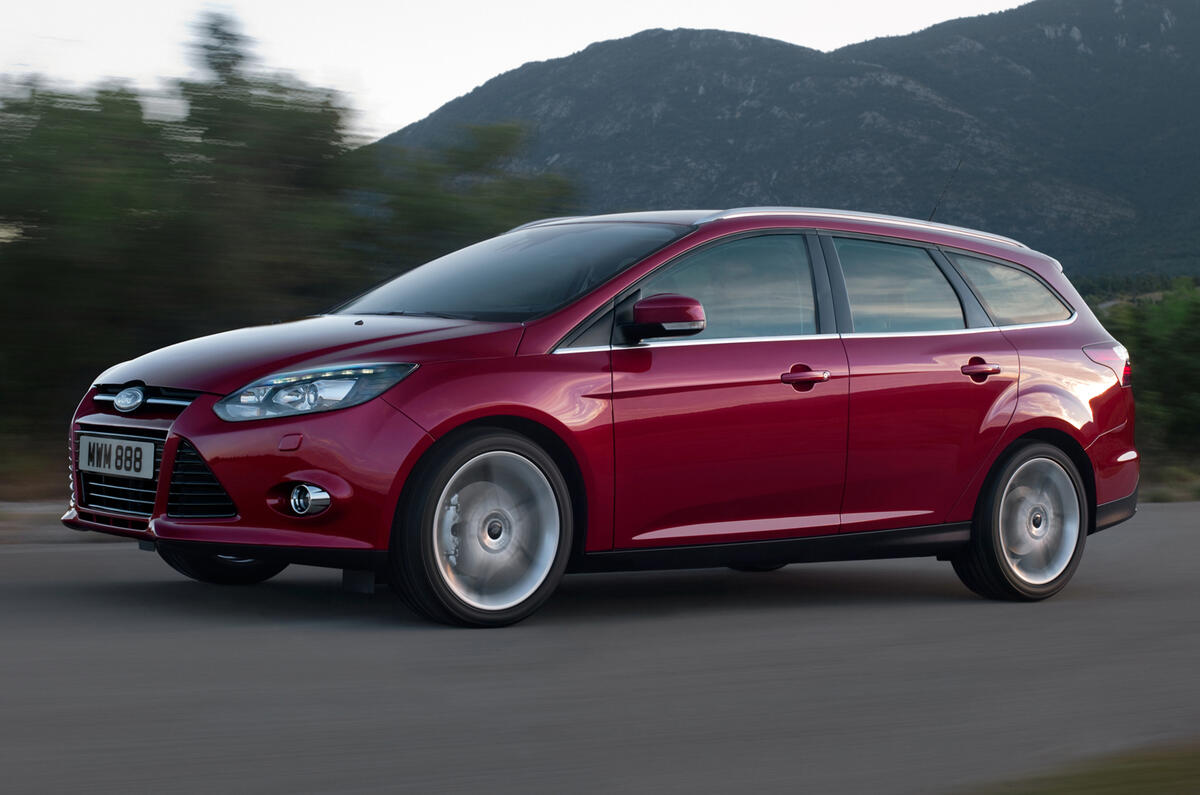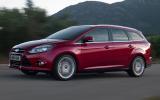What is it?
Our first taste of the mark three Focus wagon, and we’re sampling it in relatively modest 1.6-litre TDCi form, and Zetec trim. So while other more expensive examples of the compact estate have more power and more generous helpings of toys from the Focus’ long optional equipment allotment, this one’s likely to be the volume seller.
Ford’s direction of development of the Focus has been the subject of plenty of criticism from us over the last year or so. In an attempt to make it a global hit, the Blue Oval has enhanced and revised its former UK chart-topper in very many objective and sensible ways, but also sanitised it slightly. But however regrettable the latter may be, the former updates promise, at least, that this estate version of the new mid-sized Ford should be particularly good.
What’s it like?
Emitting 109g/km of CO2, this Focus is one of the more accommodating cars on offer in VED road tax band B – an attractive fleet option too - and it’s priced a little above VW’s 1.6-litre TDi Golf Bluemotion Technology and Vauxhall’s 1.7-litre CDTi Astra Ecoflex. And however humble its flavour, it’s a well-executed family car with plenty of impressive attributes.
Like the 1.6-litre TDCi five-door we road tested three months ago, it’s a refined performer with a finely-honed and comfortable ride, and it isolates occupants from road noise and engine vibration as well as any sub-£20k diesel-powered option we can think of.
Performance is modest, but what urge is available is easy to make the most of thanks to a six-speed manual gearbox – something key rivals of this car don’t get. Engine response at low revs feels poor at first, as if the lump’s low-end torque isn’t enough to get the car moving comfortably – but it’s a relatively easy problem to overcome once you reassess how you juggle throttle and clutch.
On the move, 199lb ft of torque is enough in the mid-range to motivate the Focus along ahead of most traffic, even heavily loaded. And even heavy loaded, the Focus Estate balances a compliant ride with good body control and commendable high-speed stability.
It doesn’t steer with the same sparkle as the last car, and isn’t particularly lively or engaging on an interesting road – but while that’s regrettable with reference to the Focus’ legacy, it’s no great condemnation relative to the car’s current competitor set.
The Focus Estate rides on the same wheelbase as the five door, so unlike certain other estates it offers those in the rear no extra legroom than the hatchback. There is a little more headroom back there, as well as a 476-litre boot that expands to 1502 litres once you’ve flipped up the rear seat cushions and folded the seat backs (which go almost, if not quite flat).
That’s not a class-leading capacity by any means – a Skoda Octavia swallows fully 153 litres more – but it’s enough for all but the very biggest loads. More importantly, the load bay is just about long enough, with the seats down, to carry fridges and the like. Thanks to new inclined rear dampers and a special boot floor, the estate’s load bay is also 119mm wider than the hatchback’s.
Should I buy one?
It may not be the obvious choice for those looking for an affordable family wagon, neither is it the most practical C-segment estate in outright terms, but for the same reasons we’d recommend the regular five-door Focus, the estate’s equally good.

















Join the debate
Add your comment
Re: Ford Focus Estate 1.6 TDCi
Re: Ford Focus Estate 1.6 TDCi
As a long time admirer of the way the previous generations of Focus handle I must get myself into one of the latest just to see how it goes. I'm intrigued.
Re: Ford Focus Estate 1.6 TDCi
Are you tealking about road holding or handling balance?
The new Focus has definitely lost its old front to rear balance and replaced it with improved road holding.
They are not the same thing but many are prepared to sacrifice handling for road holding.